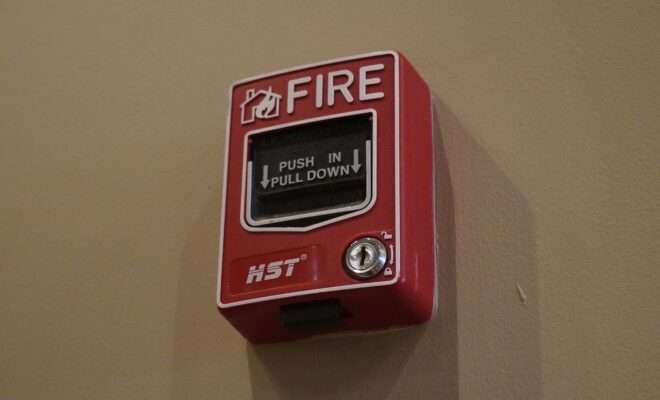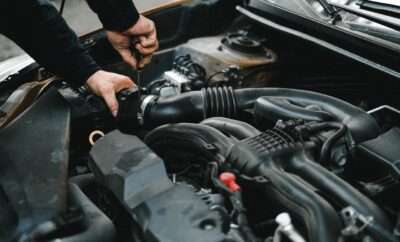
Fire Alarm System – Tips for Keeping It in Top Condition
Fire Alarm System – Tips for Keeping It in Top Condition
Fire alarm systems are the unsung heroes of fire safety, standing guard 24/7 to ensure we’re alerted at the first sign of trouble. Like all vigilant guardians, they need regular maintenance to perform their duties effectively. In this blog, we’ll explore why maintaining your fire alarm system is crucial and offer practical tips to keep it in top condition. Along the way, we’ll touch on some safety tips for small businesses and discuss the importance of a comprehensive fire protection system. Fire alarm system – tips for keeping it in top condition.
Understanding Your Fire Alarm System
Before diving into maintenance tips, it’s helpful to understand the basic components and how they work together. A typical fire alarm system includes:
- Smoke and Heat Detectors: These are the first line of defence, detecting smoke or heat that indicates a fire.
- Control Panels: The brain of the system, interpreting signals from detectors and deciding when to trigger an alarm.
- Alarm Sounders and Strobes: These alert building occupants with loud sounds and flashing lights.
- Manual Call Points: These allow people to trigger the alarm if they spot a fire manually.
When any part of this system detects smoke or heat, it sends a signal to the control panel, activating the alarms to alert everyone in the building.
Importance of Regular Maintenance
Regularly maintaining your fire alarm system is not just a good practice—it’s essential. Here’s why:
- Ensuring
A well-maintained system reduces the risk of false alarms, which can be disruptive and costly. More importantly, it ensures the system works correctly in an emergency, giving everyone the best chance to evacuate safely. - Compliance with Regulations
Fire safety regulations often require regular maintenance and testing of fire alarm systems. Non-compliance can lead to hefty fines or legal issues, not to mention increased insurance premiums. Staying on top of maintenance helps you meet these legal obligations and avoid potential penalties. - Extending System Lifespan
Regular maintenance can extend the lifespan of your fire alarm system. Identifying and addressing issues early can prevent minor problems from becoming major ones, ultimately saving money on repairs or replacements.
Routine Maintenance Tips
Here are some practical tips for maintaining your fire alarm system:
Weekly Checks
- Inspect Control Panels: Check for error codes or warning lights on the control panel. These could indicate issues that need immediate attention.
- Test Alarm Devices: Each week, test a different alarm device to ensure it’s functioning correctly. This helps you cover all devices over time without causing too much disruption.
Monthly Checks
- Clear Obstructions: Ensure all smoke and heat detectors are free from dust, debris, or any obstructions that might impair their function.
- Verify Alarm Functionality: Test alarm sounders and strobes to ensure they are audible and visible throughout the building.
Quarterly Checks
- Test Manual Call Points: Check each manual call point to ensure it triggers the alarm when activated.
- Check Battery Levels: Ensure backup batteries are fully charged and secure connections.
Annual Inspections
- Professional Inspection: Have a certified technician perform a comprehensive inspection and servicing of the entire system. This should include detailed tests and recalibration of all components.
Common Issues and Troubleshooting
Despite regular maintenance, issues can still arise. Here are some common problems and how to troubleshoot them:
False Alarms
False alarms can be caused by dust, steam, cooking fumes, or even insects. To reduce false alarms:
- Regular Cleaning: Keep detectors clean and free from dust and debris.
- Proper Placement: Ensure detectors are placed away from kitchens or bathrooms where steam and fumes are standard.
System Malfunctions
If a part of the system isn’t working correctly:
- Identify Faulty Components: Check the control panel for error codes that can help identify the faulty component.
- Reset the System: A simple reset can sometimes resolve minor issues. Follow the manufacturer’s instructions for resetting your specific system.
Power Supply Problems
A stable power supply is crucial for your fire alarm system to function:
- Check Backup Batteries: Ensure backup batteries are charged and replace them if necessary.
- Secure Power Connections: Verify that all power connections are secure and free from damage.
When to Call a Professional
While regular maintenance can address many issues, there are times when professional help is needed:
- Persistent Faults
If your system shows persistent faults or error codes that you cannot resolve, it’s time to call a professional. They have the tools and expertise to diagnose and fix complex problems. - System Upgrades
When upgrading or expanding your fire alarm system, a professional can help ensure the new components integrate seamlessly with the existing setup. This is especially important for maintaining a comprehensive Fire Protection System.
Additional Tips for Optimal Performance
Beyond regular maintenance, here are a few additional tips to ensure your fire alarm system performs optimally:
- Documentation and Record-Keeping
Keep a detailed log of all maintenance activities, including dates and actions taken. This will help you track the system’s health for compliance and insurance purposes. - Staff Training
Educate building occupants on how to use the fire alarm system and what to do when it goes off. Conduct regular fire drills to ensure everyone knows the evacuation procedures. - System Upgrades
Stay updated with technological advancements in fire alarm systems. Upgrading to newer technologies can enhance the system’s reliability and effectiveness. For instance, intelligent fire alarm systems can integrate better with other safety and security measures.
Conclusion
Maintaining your fire alarm system is essential for ensuring the safety of everyone in the building. Regular checks, proper cleaning, and timely professional inspections can keep your system in top condition, ready to alert you at the first sign of danger. By following these fire safety tips for small businesses and ensuring your fire protection system is always operational, you contribute to a safer environment for all.














